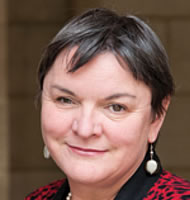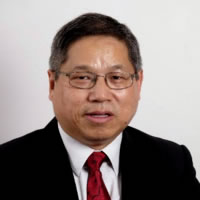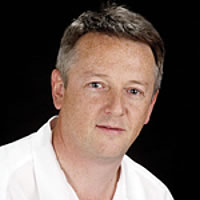Research focused on developing and demonstrating technologies that will significantly reduce the costs of capturing CO2 while minimising the environmental footprint of energy production.
Our research
The Capture Program’s primary aim is to reduce the cost and environmental impact of the capture of carbon dioxide (CO2) from a range of sources including coal and gas fired power stations, steel and cement production, in addition to natural gas. The research focuses on developing and demonstrating technologies that will significantly reduce the costs of capturing CO2 thereby mitigating financial risk for industry. We are interested in exploiting the captured CO2 and have a portfolio of projects examining utilisation strategies.
The research program focuses effort on three technologies, including solvent systems, membrane processes and adsorption, with research undertaken across a broad spectrum, from the fundamental through to pilot plant demonstration.
Featured content

Professor Sandra Kentish
Project leader, Membrane Systems
Sandra Kentish is a Professor and Head of the Department of Chemical and Biomolecular Engineering at the University of Melbourne. Professor Kentish’s research focuses on membrane separations technology. She is interested in polymeric and nanoporous carbon membranes for gas separation, as well as their use in dairy processing and desalination. She is Discipline Leader in the CRC for Greenhouse Gas Technologies (CO2CRC) for Membrane Technology. She also has an active research program in the application of ultrasound to separation processes. Her industrial experience consists of nine years across the petrochemical, photographic and pulp and paper industries.
Professor Kentish has published over 120 peer reviewed publications. She is a Fellow of the Institution of Chemical Engineers and a Member of both the Australian Institute of Energy and the Membrane Society of Australasia.
Email: sandraek@unimelb.edu.au

Professor Greg Qiao
Membrane Systems
Greg Qiao is a Professor and ARC Future Fellow in the Department of Chemical and Biomolecular Engineering at the University of Melbourne. He leads an internationally recognised Polymer Science Group with research interests in the synthesis of novel macromolecular architectures by controlled polymerisations, polymeric membranes for gas separations, functional polymers for specific applications in mineral, paint, packaging, water and special composite industry, and biomacromolecular scaffolds for soft tissue engineering. He has published more than 100 journal papers and is the inventor for more than 20 patents. He is also a Fellow of Royal Australia Chemical Institute. Professor Qiao was awarded the Freehills Award by IChemE in Australia, Royal Australia of Chemical Institute (RACI) and Engineering Australia for excellence in chemical engineering in 2010 and RACI’s Polymer Division Citation for service to Polymer Division and distinguished research achievements in the field of synthetic polymer chemistry in 2012.
Email: gregghq@unimelb.edu.au

Professor Paul Webley
Project Leader, Adsorbent Systems
Paul Webley is a Professor in the Department of Chemical and Biomolecular Engineering at The University of Melbourne and directs the Clean Energy Laboratory. His group is internationally recognized for expertise in adsorption science and technology and has produced over 150 publications and several patents on many different aspects of adsorption engineering. His recent focus has been on development and testing of materials and processes for capture of CO2 from a range of pre- and post-combustion gases. Paul is also a Project Leader in the CRC for Greenhouse Gas Technologies where he runs the Adsorption Program.
Email: paul.webley@unimelb.edu.au